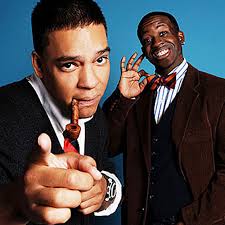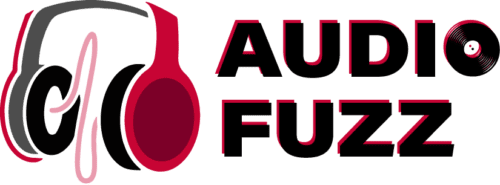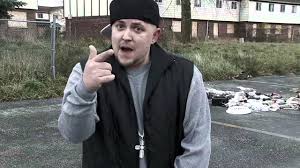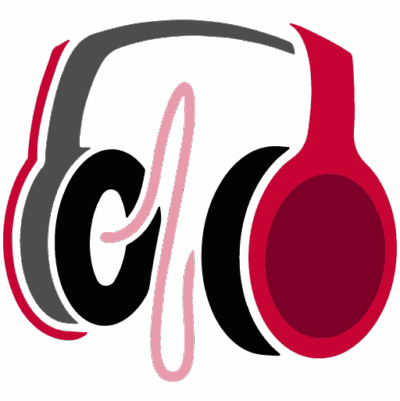10 Years After School Was My Hustle: No Longer Kidz In The Hall, Men In The World


It’s been ten years since Kidz in the Hall dropped their classic debut album School Was My Hustle. The duo met as students at the Ivy League University of Pennsylvania and ended up releasing their first album on legendary Rawkus records. After disagreements with the label they parted ways and released three more studio albums on Duck Down Records. I caught up with Naledge and Double-O and spoke about their experience coming into hip hop via an Ivy League institution, the backstory behind School Was My Hustle and The In Crowd and when we can expect the next Kidz in the Hall album.
A really great opportunity for me because I’ve been a long time fan of Kidz in the Hall since they dropped their first LP. This is an underrated group which doesn’t really get the credit they deserve. They are pioneers in the rap game and instead of relying on cliches this was a group that wasn’t afraid to experiment and be different. They make fun records but are also capable of making introspective ones as well.
The production is always top-notch courtesy of Double-O and the rhymes are always on par thanks to Naledge which makes them one of hip hops best current duos. In addition Naledge is running a successful non-profit in his hometown of Chicago while pursuing a PHD at Northwestern while Double-O is finishing up on tour with Lupe Fiasco and working as an Executive Producer on the next Nikki Jean project.
The amazing thing is with all this going on they found time to finish the next Kidz in the Hall album which the world is waiting to hear next spring or summer!!
Ryan Glover: Do you feel you guys going to an Ivy League school gave you guys an advantage or disadvantage in coming into hip hop?
Double-O: I would say that at least for me it was the only way that it could have happened. Cause I’m a couple years older than Naledge. When I first started school, a career in music wasn’t even thought about. I thought I was going to be an engineer. I’d been deejaying for years but I never thought about it as a career. So going to Penn specifically your talking about a time when John Legend was there and a lot of other musical acts. That’s kind of when the idea was presented. So without Penn I don’t think we would have met and I don’t know if music would have been a viable option.
Naledge: That’s an interesting question I think it did both. It gave us a very distinct identity, it gave us something the label was able to market. The way the music industry has changed the last three to four years you couldn’t even fathom having a music career without a label. Back then it gave us an advantage because it made us unique. The reality of it though while some marketing angles are just that, we are really Ivy League Graduates. We had friends making six figures going into finance, so it’s a fear initially that you are pursuing something that isn’t stable. So we had those internal struggles which we had to overcome but you have to remember nobody gives a flying fuck about the fact you were really smart in high school.
Ryan Glover: Do you have a favorite track from School was my Hustle?
Double-O: “Hypocrite” for me was my favorite record on the original record. The rerelease has some more of my favorite songs. I really like the idea for me it was the crux of everything I wanted to have Naledge talk about. It was definitely one of my favorite tracks at the time.
Naledge: “Go Ill State of Mind” I think it told a story, putting into context it was the first record I ever had on our local radio station here in Chicago and as a artist I think that’s one of the things you always look forward to hearing your song on your local radio station with your friends in the car and that moment happened for me. The thing about that record it wasn’t a single or something I created for radio. It was a record that represented me, my upbringing, and what a day in the life was like for a person on the south side of Chicago. The beat was different and I thought it represented a style of hip hop which was a great introduction of who we are as artists. It wasn’t too underground. I loved the hook. I wanted to do something that was similar to what Nas did on “NY State of Mind.” I wanted to do something for Chicago, create a new dynamic give us some identity. I feel like now we call it Chiraq, I felt like “Go Ill” had a more positive bend on what we were trying to portray.
Ryan Glover: On School Was My Hustle you use several samples which on later albums like Land of Make Believe was sample free? Was that a conscious decision or a reason behind that?
Double-O: It was absolutely a conscious decision. Basically School Was My Hustle was not a premeditated album. Once we got to see how stuff worked in live space we wanted to change the tempo the way we wanted to act on stage. It didn’t give us the hype rara stuff we wanted to make. So we were like lets figure it out that way. It was a smooth transition. The In Crowd is probably 50/50 with sample based stuff but by the time we got to Land of Make Believe we had success with licensing placements and we realized that half of an album was useless other than being great songs we couldn’t use it for much of anything. So Land of Make Believe was this shift to start experimenting with innovating sound so we wouldn’t have to clear any samples or owe anybody anything.
Ryan Glover: When you were making records how conscious were you of making records for radio, was that ever a discussion you had at Rawkus or Duckdown?
Naledge: I’ve never made records with radio in my mind. I think thats always been Double-O’s frame of mind as a producer. Through our first and second album it was a lot of trial and error. We don’t live live in the same city so often times they were these situations where he would send me beats and then I would pick these beats and rap on them and send the ideas back and then we would go back and forth. Then we would meet up in the same city and I would find out what he really wanted that beat to be, like I thought you were going to make something a little more radio friendly for this record. Thats how “Driving Down the Block” was formatted for radio, but I know he made that with that intent in mind. Producers tend to think about that more. When I rap I don’t think about that.
Double-O: School Was my Hustle exists because everything we were making at the time wasn’t radio enough. So School Was My Hustle was supposed to be the mixtape before the Naledge album. The conversation at Rawkus was like you guys don’t have the radio record yet. We need to push back the release of the album until. So then when it comes to the In Crowd we wanted to make more fun records but the In Crowd starts off in the same weird way School Was My Hustle did because we were working on an EP which was called Class Participation which was supposed to be a six, seven song EP with guest features on every single song with new industry friends and connections we had made. The only reason we even sat down with Duck Down is because we wanted to get Sean Price on the record and when they heard what we had they were like we should make this an album and we want to put it out. So both those albums never came from sitting down trying to make a proper album, just experimenting and starting with a small idea. Land of Make Believe was the first time we made a proper Kidz album.
Ryan Glover: I feel I could list a number of contributions you guys have made to hip hop, do you feel that you have gotten the credit you deserve?
Naledge: (laughs) Hell naw we haven’t gotten the credit we deserve. It’s some people who really get it and really respect what we’ve done. It’s an interesting thing, we get our respect amongst industry heads. I can’t even think about the number of artist that told us “I used to really fuck with y’all shit back in the day.” That’s the type of the stuff that lets me know the type of stuff we was doing was good. When I met Kid Cudi he gave respect, when I met Drake he gave respect, when I met J. Cole he gave respect. All these people I was surprised they knew about the music, more than I even knew, like Pete Rock, a lot of people, Redman, like when I met them they were like “what y’all did was dope, I can’t wait to hear more, why didn’t Rawkus do more with y’all?” We helped a lot of younger acts by putting them on the road with us. I think it was a group of us who were all making music at the same time and I think we get lumped in with a bunch of other groups and when they are listing these groups they forget to say us. I think people will go Cool Kids, Pac Division, they’ll lump us in they’ll mention Asher Roth and these are all great artists who came out around the time of our second album, a lot of people kind of forget that first album we made or that we weren’t new artists when those guys were new artists.
Did you feel School Was my Hustle was properly promoted by Rawkus? What do you feel that they didn’t do that they could have to done to push the album further?
Naledge: No (laughs). Thats not even a diss to Rawkus, School Was My Hustle wasn’t even supposed to be an album it was supposed to be a mixtape. It wasn’t even meant to do what it did as Double-O said earlier. We were just anxious to put out music. Really Rawkus signed me as a solo artist they were really trying to push me as a solo artist, they weren’t even messing with the group, they were like wheres your solo album? So I was making solo records and they weren’t feeling them. So I had made a ton of records and me and Double-O had a ton of records together that we were like we have a project. So we wanted to find a way to put some music out and get on the road. So we started exploring other options. Keep in mind this was 2005, in 2016 you would’ve just took that music and put it on DatPiff or whatever and shot a video. But we were waiting for the label to do something. In hindsight I wish we were more renegade about what we were doing. So we were shopping that project to other labels and Rawkus was like we’ll put it out but this is the music you said you didn’t like. Thats when I realized the music industry is a guessing game, they figured if other labels liked it than it must be pretty good and I don’t even think they thought it would do much. It did well though for what we spent on it, especially in Europe. So we spent a whole year in Europe. The European market loves hip hop.
When can we expect the next Kidz in the Hall album? What are you guys doing now?
Double-O: Right now I’m on tour with Lupe Fiasco wrapping this up, working a bunch with Nikki Jean on her new project, put out two records with Tabi Bonney the first with Wiz Khalifa. The new Kidz in the Hall album is done just gotta tighten it up.
Naledge: First and foremost I have to mention the fact I’m in Chicago and I run a non-profit organization called the Braniac Project which has a mission and goal of promoting the recording arts as a way of helping young black men into the workforce, teaching them computer software and engineering. Pretty much just making the music industry a viable option for Chicago youth, so thats what thats the last four, five years of my life has been. As far as the new Kidz in the Hall project if you were to ask me in January I would have thought it would be out by this year but I’m leaning to say by the Spring or Summertime.
Ryan Glover is a contributing writer for www.audiofuzz.com. Follow him on Twitter @ActorRGlover, “Like” him on Facebook and add him to your Google network



